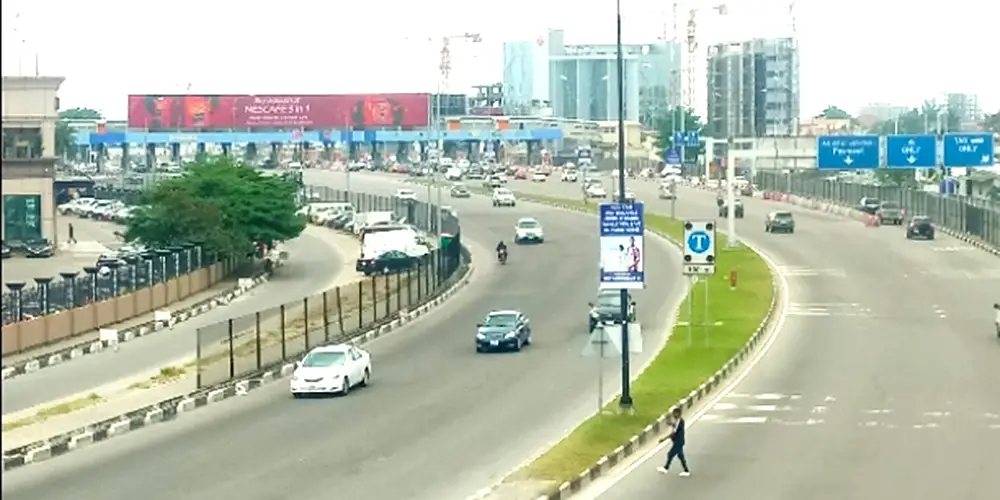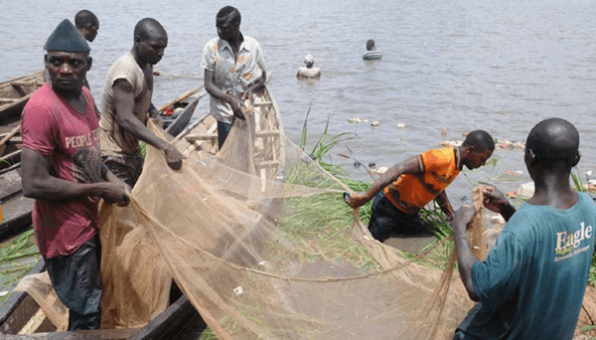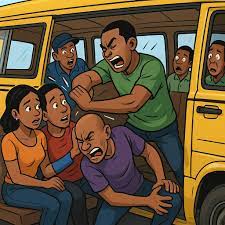Metro
Lekki–Ajah road rehabilitation begins Saturday

• LASG assures of effective traffic management
By Grace Edet
The Lagos State Government has assured residents and motorists of effective traffic management plans ahead of the planned rehabilitation of the Lekki–Ajah corridor, aimed at reducing disruptions and ensuring smooth movement during the eight-month repair period.
The assurance comes in response to public concerns over likely diversions, as the project is scheduled to begin on Saturday, November 15, 2025 and conclude on Wednesday, July 15, 2026.
In a statement issued on yesterday by the Special Adviser to the Governor on Transportation, Sola Giwa, the government explained that the rehabilitation would be carried out in phases and guided by a detailed traffic management plan designed to maintain smooth vehicular flow along the corridor.
“The rehabilitation work will be implemented in carefully planned phases to ensure that daily movement is not disrupted. Only specific sections of the corridor will undergo repairs at any given time, and these sections have been deliberately chosen to ensure minimal impact on the main carriageway,” the statement read.
Giwa added that alternative routes, including the Coastal Road and adjoining service lanes, are being strengthened to ease diversions, while a night-shift construction schedule will help reduce congestion during peak periods.
“LASTMA personnel will be deployed in adequate numbers along the entire stretch to ensure continuous movement, prevent gridlock, and respond swiftly to any traffic pressure that may arise during the rehabilitation period,” he said.
The government appealed for patience and cooperation, emphasising that the long-term benefits of the project would far outweigh temporary inconveniences.
“The intention of the rehabilitation project is to improve the Lekki–Ajah corridor, not to add discomfort to residents.
“We urge everyone to bear with the temporary inconvenience as we work to make commuting safer, faster, and more convenient for all,” Giwa added.
The state government had earlier announced that the rehabilitation of the Lekki–Ajah corridor will be carried out over eight months in two phases to limit disruptions to movement and business activities.
According to the Commissioner for Transportation, Mr Oluwaseun Osiyemi, the project will begin with Phase 1: Lekki 1st Toll Gate to Lekki 2nd Toll Gate, covering seven sections of the expressway and Phase 2: Lekki 2nd Toll Gate to Ajah Under-Bridge, focusing on four sections with planned traffic diversions.
Osiyemi noted that the works are part of the state government’s broader efforts to improve road quality and ease traffic flow within the fast-growing Lekki–Ajah axis.
“Some sections of the road will be partially closed during the repair period. Motorists are advised to be patient and follow traffic directions,” he stated.
The state government reaffirmed its commitment to world-class infrastructure and continuous public engagement throughout the project’s execution.
Metro
NDFFSDA seeks $100billion over damage on Niger Delta ecosystem by IOCs

The Federal Government has been asked to compel international oil companies (IOCs) to pay $100billion to oil-bearing communities in the Niger Delta for the many years of damage done on the region’s ecosystem.
Niger Delta Farmers, Fishermen/Seafood Dealers Association (NDFFSDA) made the demand at the weekend in a statement by its national President, Imoh Okoko and secretary, Sunny Eleas.
The NDFFSDA said that the operations of the oil companies have caused frequent oil spills, black soot, acid rain, gas flaring among others which adversely impact on the communities leading to loss of livelihoods and even deaths.
The statement added that fisherman, seafood dealers and farmers have also suffered terrible loses and deaths in the course of the fishing in the waters of the region.
The statement reads in parts: “It has become pertinent to bring to your attention the fact that the ongoing oil and gas operations in the Niger Delta region are repeatedly causing severe damage to our fishing nets, hooks, boots, and other essential fishing equipment.
“The continuous destruction of our equipment by the movement of their (IOC’s) heavy sea moving machines/equipment, eg oil vessels, surveillance boots, etc, is causing immense economic loss to members of our Association, as we depend solely on these tools for our daily sustenance and income.
“The massive loss of lives and livelihood and avoidable accidents at sea are preventable and we strongly advocate that measures be put in place to ensure same so as to promote a sustainable environment for positive development in the sectors.
“These accidents variously occurred in the years 2019, 2020, 2022, and 2023, and the most recent incident occurred in 2024. These tragic incidents have not only taken away valuable lives but have left families in distress, with no compensation or recognition from either the Companies or the relevant supervisory authorities.
“In light of the above, we respectfully call on President Bola Ahmed Tinubu and the National Assembly to work out the payment is $100 billion to oil producing communities in the Niger Delta region as compensation for years of oil exploration and exploitation.
“This has led to irreversible damages to the livelihood and ecosystem in the region; this compensation would douse raging tensions and hopelessness that people in the region going through and feeling.
“This fund is needed urgently and saliently to specifically address the rapid provision of health facilities, replenishment of floundering rare animals, plants and fish species; which have been devastated for the past 65 years.
“We also support the call that the above demanded compensation be paid into a special account, to be administered by oil-producing states in collaboration with local and international environmental groups with focus on provision of health facilities, women empowerment, education and reviving fishing and agriculture in the region”.
Metro
A ride in a typical Lagos city “danfo”

By Abimbola Ola
The sun was blazing that afternoon when I set out with my best friend, Sekinat. Lagos was already in its usual state of restless movement—horns blaring, hawkers chanting, and the constant smell of exhaust fumes mixing with roasted corn from the roadside.
We made our way to the Gbagada bus stop, where the air was thick with noise. Conductors hung halfway out of their buses, shouting destinations with cracked voices.
“Oshodi! Oshodi straight! Enter with your ₦300 change! Charlie Boy, ₦200! Oshodi last card, ₦300!”
The voice came from a young conductor whose face was lined with sweat and impatience. Without wasting time, we climbed into a small korope, the kind of mini-bus that always looked like it had survived ten accidents but somehow still carried people every day.
Sekinat and I squeezed into a seat at the back, relieved that we had found a “nice space.” The seats were torn at the edges, yellow foam peeking out, but in Lagos, that was luxury enough.
The bus filled quickly, with passengers pressing against one another like books packed too tightly on a shelf. Despite the crowd, the ride began smoothly. The radio crackled faintly in the front, playing Fuji music, while the city sped past in flashes—billboards, okadas weaving dangerously, and hawkers balancing trays of Gala and La Casera.
Then came Charlie Boy bus stop.
A lanky man in the front seat, with a face that looked permanently angry, cleared his throat and spoke.
“I can’t pay ₦300,” he said firmly. “I dey drop for Anthony Oke. I go pay ₦200.”
The driver, a stocky man with rough palms and a short temper, turned his head slightly, still keeping one hand on the wheel.
“Oga, I no fit collect ₦200. Fuel don cost. Tinubu don make everything expensive. Even pure water sef dey follow increase.”
The lanky man scoffed. “From here to Anthony Oke, ₦200 don do. You no go cheat me. I no go pay ₦300.”
And just like that, a small disagreement became a full-blown war.
“Ori e ko pe!” the driver shouted, his voice rising above the rattle of the bus. “Na you buy motor for me ni?”
The passenger leaned forward. “You dey mad? You wan use your own wahala chop my money?”
The argument went on and on, words flying like bullets. The rest of us sat in silence, watching the tension build like a storm cloud. The conductor tried to calm things down, but the two men were lost in their anger.
Then, the unimaginable happened.
The passenger, in a fit of rage, grabbed the steering wheel.
What followed was chaos. The bus swerved violently. My head knocked against the side window as people screamed.
“Blood of Jesus!” I shouted at the top of my lungs.
“Jesus save us!” another woman cried.
“Ah! You want to kill us!” voices rang from every corner.
“Gbaaa!” The sound of metal smashing against concrete filled the air as the korope collided with a culvert. Dust and smoke rose as passengers tumbled over one another. Bags flew, slippers scattered, and my heartbeat thundered in my ears.
Before I could gather myself, the driver leapt out of the bus. His shirt was half-torn, sweat dripping from his forehead, and then—he pulled out an axe from underneath his clothes.
Gasps filled the air. My blood ran cold.
“You dey craze ni? You wan kill all my passengers?” he screamed, advancing towards the passenger with the kind of rage that made everyone freeze.
“Driver, no o!” someone cried.
“Abeg, drop the axe!” another begged.
“Ola, calm down! Life no get duplicate!”
But he didn’t listen. The axe glinted in the harsh sun as he inched closer. The lanky man cowered, but his pride kept him standing. Sekinat clutched my arm, whispering, “We have to leave, we have to leave now.”
As soon as I saw a small gap near the door, I bolted. My legs shook, but fear gave me speed. I called out for Sekinat, my voice breaking with panic. Behind me, the cries of other passengers filled the air.
“Help us!”
“Don’t kill him!”
“Somebody hold the driver!”
By the time I reached the roadside, my chest was heaving. People from nearby stalls and passersby had gathered, forming a protective circle. They pleaded with the driver, trying to wrestle sense back into him.
Finally, an elderly man stepped forward and said, “Driver, abeg, leave this matter. I go pay the ₦100 difference.”
The driver stopped, panting, his grip on the axe loosening. Slowly, reluctantly, he lowered the weapon. A tense silence spread, broken only by the nervous chatter of those who had witnessed the madness.
He turned back to us. “Everybody enter bus. Make we continue journey.”
But I shook my head. My voice was firm though my knees trembled. “I’m not going again. I’ll take another bus.”
To me, Oshodi had never felt so far away.
As I stood there, watching the korope roll back onto the road with its rattling engine, a strange calm washed over me. I was grateful—not just for surviving, but for the reminder that Lagos life is fragile. A quarrel over ₦100 had nearly cost us all our lives.
I whispered a prayer: “Thank You, Lord, for another chance to live.”
In Lagos, they say no party beats a Lagos party. But on the roads? No danger beats a Lagos bus ride. And that day, I learned—sometimes, survival itself is the greatest miracle.
Metro
One day inside Lagos public bus

By Abimbola Ola
One day, I was coming from Allen Avenue, Ikeja. My friend Sekinat and I took a bus from Allen to Yaba. The conductor was shouting, “Yaba! Yaba! Enter with your ₦700 change o, mi ò ní change o!” We laughed and entered, found seats together, and started gisting.
As more passengers entered, suddenly a strange odour began to ooze out. It was so strong that we almost choked. I quickly covered my nose, and Sekinat did the same. The smell was coming from the person sitting right next to us. By the time we alighted, my friend was almost fainting, while I couldn’t stop laughing. Me, I be giran (I’m rough), but she couldn’t handle it.
That day reminded me how important personal hygiene is. In public spaces like buses, offices, and markets, we are all sharing the same air. A lack of good hygiene doesn’t just affect one person—it makes other people uncomfortable too.
Cleanliness is not only for you but also for the people around you. Bathing regularly, wearing clean clothes, and using deodorant are small habits that make a big difference. Good hygiene shows respect for yourself and for others.
I really wish more people would take their hygiene seriously, because it matters for everyone who shares the public space.
-

 Art & Life9 years ago
Art & Life9 years agoThese ’90s fashion trends are making a comeback in 2017
-

 Entertainment8 years ago
Entertainment8 years agoThe final 6 ‘Game of Thrones’ episodes might feel like a full season
-

 Art & Life9 years ago
Art & Life9 years agoAccording to Dior Couture, this taboo fashion accessory is back
-

 Business9 years ago
Business9 years agoThe 9 worst mistakes you can ever make at work
-

 Entertainment9 years ago
Entertainment9 years agoThe old and New Edition cast comes together to perform
-

 Sports9 years ago
Sports9 years agoPhillies’ Aaron Altherr makes mind-boggling barehanded play
-

 Entertainment8 years ago
Entertainment8 years agoMod turns ‘Counter-Strike’ into a ‘Tekken’ clone with fighting chickens
-

 Entertainment9 years ago
Entertainment9 years agoDisney’s live-action Aladdin finally finds its stars





